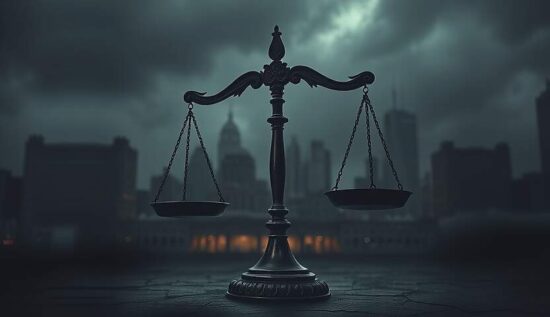a neutral and impartial body that would ensure the enforcement of law and justice, even in the face of national inaction. However, the International Criminal Court (ICC) in The Hague has been struggling to live up to its promise. Critics have long argued that the court is biased, primarily targeting countries outside the Western world. Recent events have only served to confirm these suspicions.
Israel’s Prime Minister Benjamin Netanyahu has become the first head of state to be issued a warrant for arrest by the ICC, a move that can be seen as a symbol of the court’s supposed impartiality. However, the warrant will not be executed and Netanyahu remains free to move about as he pleases. Hungary’s Prime Minister Viktor Orbán even went so far as to declare that his country would leave the ICC, while Netanyahu was welcomed in the United States, a country that has never signed the Rome Statute and has explicitly prohibited its officials from cooperating with the ICC.
The ICC’s Chief Prosecutor, Fatou Bensouda, was sanctioned by the US after she launched an investigation into possible war crimes committed by the US military in Afghanistan. The US has consistently demonstrated its disdain for the ICC and the recent events have only served to further erode the court’s credibility.
German politician and lawyer Friedrich Merz has also expressed doubts about the ICC’s ability to enforce its warrants, citing the example of Russian President Vladimir Putin, against whom a warrant has also been issued. Merz, however, would likely support the execution of the warrant, whereas he would not do the same for Netanyahu, implying that the court is not truly equal for all.
The ICC itself has also been accused of political bias. The warrant issued against Putin is seen as a political move, as he and Russia’s Children’s Rights Commissioner, Maria Lwowa-Belowa, are accused of kidnapping children from Ukraine and bringing them to Russia. While it is true that children were brought from a war zone to a safer area, the accusation is still seen as a political ploy.
Arab states, on the other hand, have been actively working to reunite families, with regular family reunifications taking place through their mediation. Despite this, the ICC has issued warrants against Putin and Lwowa-Belowa. The lack of reporting on these diplomatic efforts in German media only serves to further highlight the court’s perceived bias.
The accusations against Netanyahu, on the other hand, are much more substantial, with his genocidal and displacement policies against Palestinians being well-documented. He continues to pursue these goals, with the support of the US. The ICC’s warrants against Hamas leaders, who were subsequently killed by Israeli forces, also raise questions about the court’s impartiality.
The many contradictions and biases on display make it clear that the Western world is not yet ready for a truly independent international criminal court. The ICC’s slow and quiet demise is all but inevitable, a victim of its own failures to deliver on its promise of justice.





